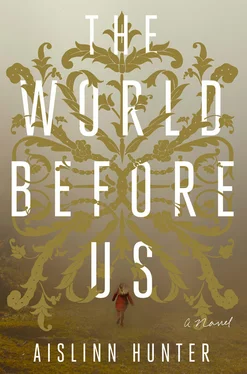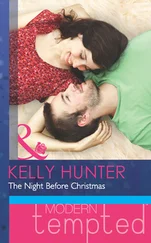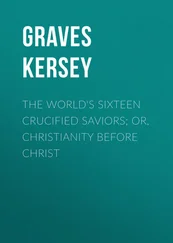“Big crowd for a book about gardens.” Duncan takes a sip of wine and surveys the audience, most of them standing and socializing around the empty seats. When he spots a pretty twenty-something in a black cocktail dress he lifts his arm off Jane’s shoulder and straightens his bow tie. “You ever heard of this guy?” His eyes follow the girl until he loses her.
“The author?” Jane stalls. To her relief, Duncan doesn’t notice.
“That Judith’s a bit of a ball-breaker, isn’t she?”
“Sorry?”
Duncan glances at Jane. “The conservation supervisor. I saw her come out of Gare’s office and the look on his face — I swear I thought he’d had a stroke.”
“That’s not funny.”
Duncan turns and gives Jane his full attention, leaning his right shoulder against the glass of the gift shop wall. “You okay? You’re acting a bit odd.” When Jane doesn’t reply, his gaze drifts down to take in her dress and the heels she’s wearing. When his eyes come back up they stop overlong at her chest. “You look great, by the way. Your—”
Jane interjects before he says something crass. “Have you read the book?” There is a large pressboard mock-up of The Lost Gardens of England staring down at them from over Duncan’s shoulder.
“Nah. You?”
Jane nods.
“What’s his name again, anyway?” Duncan takes another sip of wine and squints into the distance. “Is it Wallace?”
“William,” Jane says, scanning the crowd. She can feel the muscles of her face trying to approximate indifference. “William Eliot.”
Names are the most valuable things. We have always said this. They are more valuable than the clocks, books, photographs and objects we find ourselves circling; more important than the tortoise behind the musicians, than the logbook and slivers of wood from Nelson’s ship in the nautical cabinet beside us. Names are pronouncements, entries, claims. Where things hold secrets — ones the people passing through the Chester do not always seek out — names state. They say, I was, I am . When the Chester first opened, it was the things that were highlighted: the wadded birds that could be stroked so that their feathers’ remiges and vanes might be felt under the tip of a finger, the sea sponge modelled in glass that could be lifted toward a lamp and turned over, its latticework marvelled at. The pickaxe the explorer Hoburn carried on his expedition north was once swung through the air by the nephew of a Society member, one swift swish that startled everyone. Back then, names mattered less because the men attached to them still lived. But Edmund Chester knew better. He forecasted a future rife with forgetting. As much as we love his museum, as much as we love Jane, we must admit that if we thought in terms of currency, and if fluttering were allowed, we would pick up the gold astronomical clock in our hands, we would secrete Jane away and we’d hold them both ransom for names. To have lost the thing that you have carried with you the whole of your life is no slight thing. This is why we stand around Jane’s desk and crane our necks when she flips through censuses or logs, church registers, hospital records or ship manifests. We are looking for the slightest scrap of a signature, any blotted bit of ink we might know. Some of us mouth the names she writes down to see if the form they take is familiar, to see if we can slip into them like we would our own coats or favoured pair of shoes.
A day or two before Jane met Lewis at The Lamb to tell him about William Eliot’s lecture, the suggestion arose that we should all take names. It was evening, and we were in Jane’s flat and still reeling from news of the closure. One of us said that taking names would help us sort out who was who, be an expedient way to reference the speaker. He was over by the bookshelf perusing the spines, and after a minute he said, “Call me John.” Most of us are superstitious and so we hesitated.
The theologian said, “No.”
“I think we should all have a say,” John countered.
“Ah, democracy, excellent choice,” said the idiot.
It was almost ten o’clock and Jane was curled up on the sofa. There was an old black-and-white film on the television and she’d been drifting in and out of sleep. The dog was flopped down by the door, nosing the draft from the landing.
“What exactly is the motion?” the theologian asked from the window.
“That we take names,” John said, “like I just did.”
“Pseudonyms,” the theologian corrected.
“What’s that?” asked the girl, who was sitting on the floor watching the tail end of a commercial for mobile phones.
“It’s sort of like a nickname, like the one the poet gave me. Except that it’s an assumed name, an alias,” Cat said.
“You mean made up?”
Cat glanced at the television. The movie had come back on and the two main actors were facing each other, a man and a woman pretending to be real people, pretending to be in love. “Yes,” she said, “made up.”
“It’s a false name,” the theologian added warily, not even bothering to turn around.
“What’s the harm in voting?” John asked. “Who’s with me?”
A few of us raised our voices, started to argue. The poet cleared his throat.
“Stop talking!” the boy shouted. “We’re trying to watch the telly!”
Sam stood up and gave a low growl.
“Now look what you’ve done,” Cat said.
“Who started the dog up?” the theologian asked.
“My point exactly,” said John.
“Pay attention!” the boy seethed, turning back toward the screen.
We stopped talking and gathered around the television. The couple was now in a convertible driving along the coast. The woman had a silk scarf over her hair, the tip of it flapping lightly in the wind. They started to argue and the man jerked the wheel, pulling the car over to the side of the road under a cloud of dust. The woman threatened to get out. When the dust settled the man knocked his cap back with his knuckle and drew the actress toward him. She turned away and the music rose a notch.
“Haydn!” the musician shouted, figuring it out at last.
“It was better during the car chase.” The boy sighed.
Over by the door the dog slid his forelegs forward, his chest hitting the hardwood with a thump .
“What about the names?” John asked.
“Let’s wait a bit longer,” we said, still watching the movie. “See what happens.”
“Right,” John said tersely. “Meaning wait and see what happens to me.”
It was the next day, or maybe the day after, that we went with Jane to meet Lewis at The Lamb. We remember the day almost as clearly as Jane does because of what she said at the end of it. She’d arrived at the pub early and instead of entering sat on the heath across the road to pass the time. A few of us lay on the green beside her, watching the clouds sweep overhead like lantern slides. Others sat by the pond and drifted into else-wheres: parks from childhood, village squares, meadows in some other when.
It was a Sunday, and when we went inside the pub it was quiet: a few couples finishing lunch by the windows, two men at the bar. Jane bought a pint and slid into a snug surrounded by diamonds of stained glass.
“Right,” one of us said, picking up the thread of the conversation we’d been having on the heath, “so if everything Ceases eventually—”
“Not a hypothetical,” the theologian interjected.
“ If everything Ceases, then why are we still here?”
“Because,” the theologian snapped, “we’ve chosen to be here.”
“To what end?” John asked.
“Love,” sang Cat.
“Fear,” the poet ventured. “The alternative being unthinkable.”
Читать дальше












